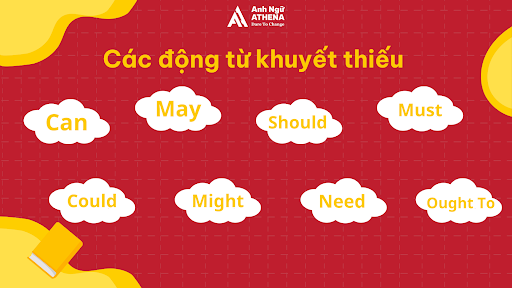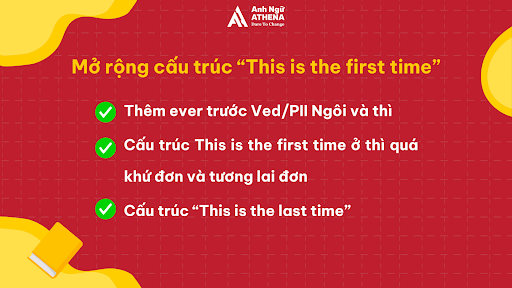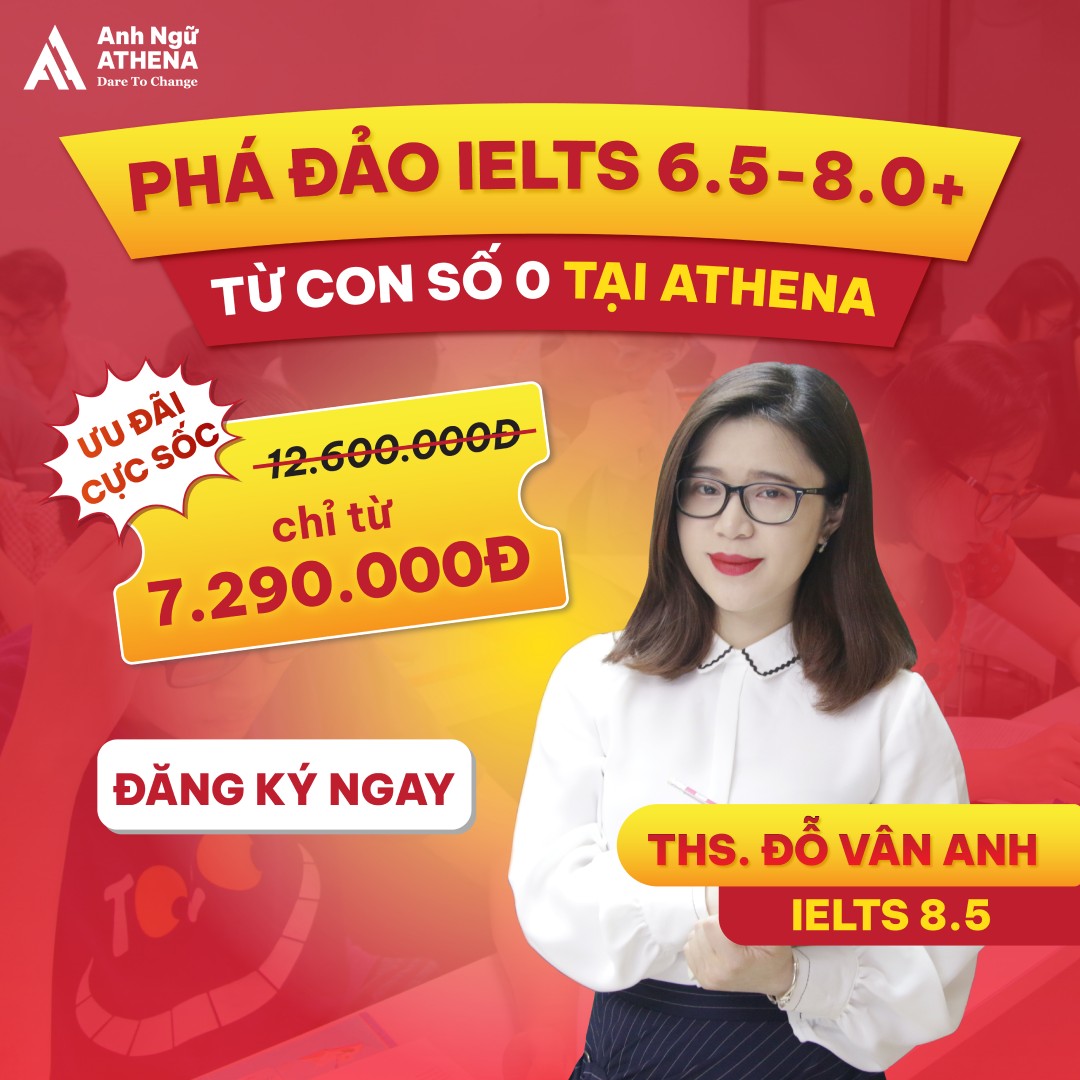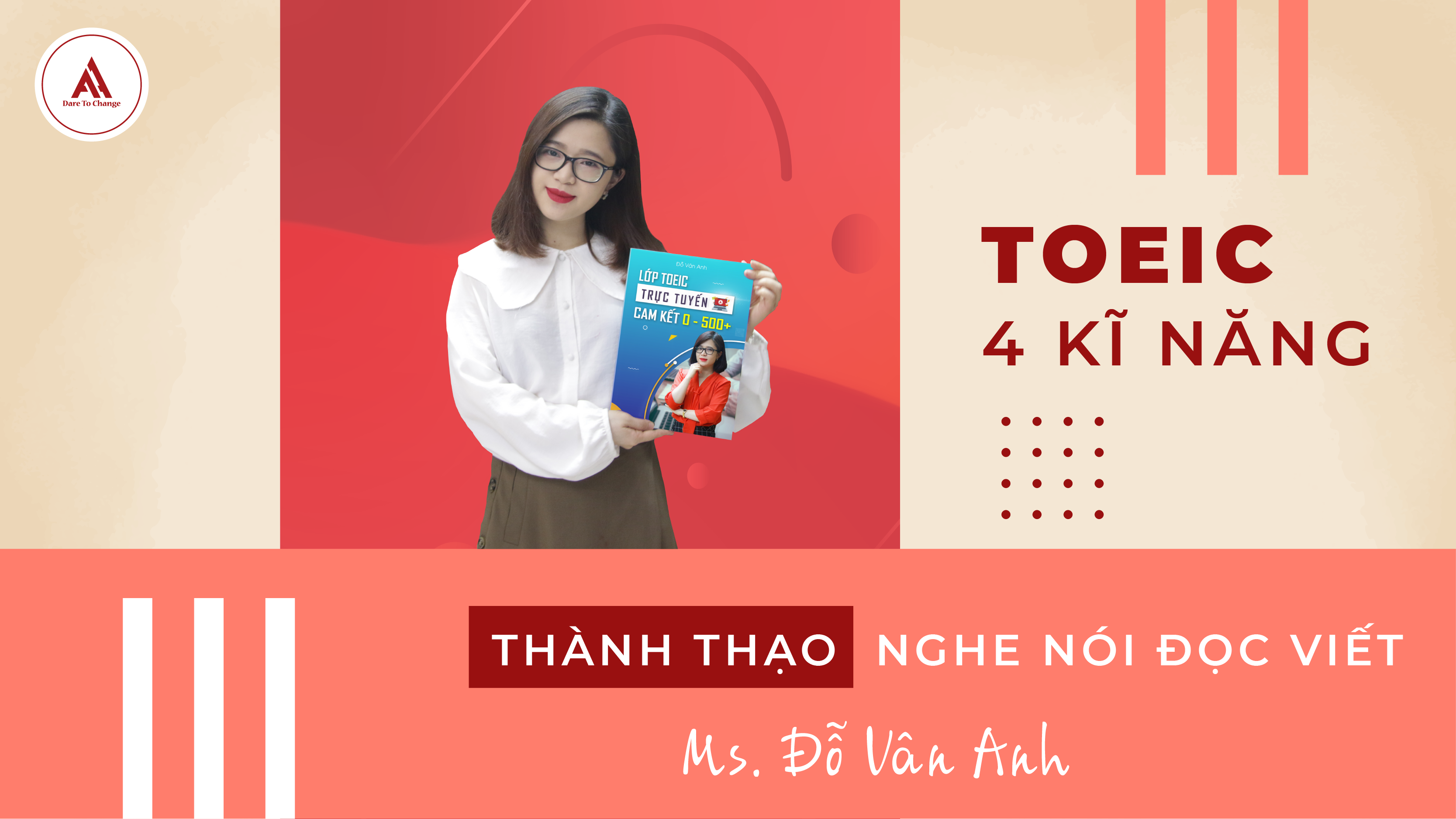50+ Bài Tập Động Từ Khuyết Thiếu Có Đáp Án Chọn Lọc
Động từ khuyết thiếu được sử dụng rộng rãi trong trong đời sống hàng ngày cũng như trong các kỳ thi tiếng Anh. Bài viết sau đây, Anh ngữ Athena sẽ tóm tắt lý thuyết và chọn lọc 50 bài tập động từ khuyết thiếu hay nhất, giúp các sĩ tử chinh phục dạng bài này thật dễ dàng!

Lý thuyết động từ khuyết thiếu
1.1. Động từ khuyết thiếu là gì?
Modal verbs (Động từ khuyết thiếu) là một loại động từ đặc biệt trong tiếng Anh và được sử dụng để bổ nghĩa cho động từ chính trong câu.

Định nghĩa động từ khuyết thiếu
- Can: Diễn tả khả năng, sự cho phép, hoặc yêu cầu.
Ví dụ: She can speak English fluently. (Cô ấy có thể nói tiếng Anh trôi chảy.)
- May: Diễn tả sự cho phép, khả năng, hoặc xin ý kiến.
Ví dụ: You may leave the room now. (Bạn có thể rời khỏi phòng bây giờ.)
- Should: Diễn tả sự đề nghị, lời khuyên hoặc ý kiến về một hành động nên được thực hiện.
Ví dụ: You should study for the exam. (Bạn nên học cho kỳ thi.)
- Must: Diễn tả sự bắt buộc, yêu cầu hoặc sự chắc chắn.
Ví dụ: You must wear a seatbelt in the car. (Bạn phải thắt dây an toàn trong xe.)
- Could: Diễn tả khả năng trong quá khứ hoặc trong một tình huống giả định.
Ví dụ: I could swim when I was a child. (Tôi có thể bơi khi tôi còn là một đứa trẻ.)
- Might: Diễn tả khả năng hoặc xác suất thấp xảy ra trong tương lai.
Ví dụ: It might rain later, so bring an umbrella. (Có thể sẽ có mưa sau này, vì vậy hãy mang theo một cái ô.)
- Need: Diễn tả sự cần thiết hoặc yêu cầu. Ngoài ra, "need" cũng có thể được sử dụng như một động từ thường (regular verb) khi theo sau bởi một đối tượng (object).
Ví dụ: You need to study for the exam. (Bạn cần phải học cho kỳ thi.)
- Ought to: Diễn tả lời khuyên, sự đề nghị hoặc nghĩa vụ.
Ví dụ: You ought to apologize for what you said. (Bạn nên xin lỗi vì những gì bạn đã nói.)
Các modal verbs có khả năng ảnh hưởng đến ý nghĩa và cấu trúc câu, và thường đi kèm với động từ nguyên thể. Điều này có nghĩa là sau một modal verb, động từ chính sẽ không chia theo ngôi hay thì. Ví dụ: "I can swim" (Tôi có thể bơi), không phải "I can swims".

Các động từ khuyết thiếu
1.2. Cấu trúc của động từ khuyết thiếu
| Thể câu | Công thức |
| Câu khẳng định | S + modal verb + V nguyên thể |
| Câu phủ định | S + modal verb + not + V nguyên thể |
| Câu nghi vấn | Modal verb + S + V nguyên thể |
1.3. Must/Should/Could/Would Have + PII
| Cấu trúc | Ý nghĩa | Ví dụ |
| Must have + PII | Diễn tả khả năng xảy ra một điều gì đó rất chắc chắn dựa trên những sự thật trong quá khứ, căn cứ vào bằng chứng nào đó. | The cake is gone. Tom must have eaten it all. (Chiếc bánh đã biến mất. Tom chắc hẳn đã ăn hết.) -> Dựa trên việc bánh không còn và sở thích của Tom với những món ngọt, có khả năng cao là anh ấy đã ăn hết. |
| Could have + PII | Diễn tả một khả năng có thể đã tồn tại trong quá khứ, nhưng đã bị từ chối hoặc không xảy ra vì lý do nào đó. | I could have studied harder, but I chose to go out with my friends instead. (Tôi có thể đã học chăm chỉ hơn, nhưng thay vì vậy, tôi chọn đi chơi với bạn bè.) |
| Should have + PII | Diễn tả sự nuối tiếc về một việc không được thực hiện trong quá khứ. | We should have started the project earlier. Now we're running out of time. (Chúng ta nên đã bắt đầu dự án sớm hơn. Bây giờ chúng ta đang hết thời gian.) |
| Would have + PII | Cấu trúc diễn tả một hành động mà người nói muốn thực hiện trong quá khứ nhưng sau đó lại không làm được. | They wanted to start their own business, but circumstances held them back. (Họ muốn bắt đầu kinh doanh riêng, nhưng hoàn cảnh đã ngăn cản họ.) |
Lưu ý khi làm bài tập động từ khuyết thiếu
- Nhận diện động từ khuyết thiếu: Xác định các từ như "can", "may", "should", "must", "could", "might", "need", "ought to" trong câu. Đây là các từ cho biết câu có sử dụng động từ khuyết thiếu.
- Ngôi và thì: Xác định ngôi và thì của câu để sử dụng đúng động từ khuyết thiếu.
Ví dụ: "I can swim" (Tôi có thể bơi), "He should go" (Anh ấy nên đi).
- Nguyên thể của động từ chính: Động từ chính sau động từ khuyết thiếu phải được sử dụng dưới dạng nguyên thể (infinitive) không có "to".
Ví dụ: "I can swim" (Tôi có thể bơi), "She should study" (Cô ấy nên học).
- Chú ý đến các biến thể: Một số động từ khuyết thiếu có các biến thể khác nhau. Ví dụ, "can" có dạng phủ định là "cannot" hoặc "can't", "may" có dạng phủ định là "may not" hoặc "might not". Chú ý đến các biến thể này khi sử dụng trong câu.
- Cấu trúc câu: Modal verbs thường được sử dụng để bổ nghĩa cho động từ chính trong câu, vì vậy chú ý đến cấu trúc câu và ý nghĩa mà modal verbs mang lại cho câu.

Lưu ý khi làm bài tập động từ khuyết thiếu
50+ Bài tập Động từ khuyết thiếu từ cơ bản đến nâng cao
Bài 1: Điền động từ can, could, may, might, must, should, ought to, need vào chỗ trống
1. You ____________ take an umbrella. It looks like it's going to rain.
2. ____________ you please help me carry these bags?
3. She ____________ have forgotten her wallet at home.
4. We ____________ finish the project by tomorrow.
5. You ____________ be more careful when driving.
6. We ____________ go to the store to buy some groceries.
7. ____________ you please lend me your pen?
8. He ____________ have left his phone at the office.
9. You ____________ arrive early for the meeting.
10. They ____________ be tired after such a long journey.
11. ____________ I ask you a personal question?
12. Students ____________ wear a school uniform.
13. She ____________ have forgotten her keys at home.
14. I ____________ go to the dentist for a check-up.
15. We ____________ be more responsible with our money.
Bài 2: Viết lại câu sau với nghĩa không đổi, sử dụng các động từ khuyết thiếu
1. It is necessary for you to study for the test.
2. It is possible that he will come to the party.
3. She has the ability to play the piano.
4. I recommend that you see a doctor.
5. It is compulsory for students to wear uniforms.
6. It is important for you to exercise regularly.
7. It is possible that they will win the competition.
8. He has the ability to solve complex problems.
9. I advise that you save money for the future.
10. It is necessary for us to respect others.
11. He has the ability to speak multiple languages.
12. I recommend that they take a vacation.
13. It is important for us to save the environment.
Bài 3: Chọn động từ khiếm khuyết đúng để hoàn thành mỗi câu
1. You ____________ eat too much junk food. It's not good for your health.
a) could b) might c) should
2. They ____________ arrive on time for the meeting.
a) can b) must c) ought to
3. ____________ I borrow your umbrella? It's raining outside.
a) May b) Need c) Shall
4. He ____________ have left his keys at home. I saw him searching for them.
a) might b) should c) could
5. We ____________ book the tickets in advance. The concert is very popular.
a) must b) may c) ought to
6. You ____________ call her and apologize for your behavior.
a) should b) could c) may
7. They ____________ finish the report before the deadline.
a) can b) must c) might
8. ____________ I have some more cake?
a) Could b) Need c) Shall
9. He ____________ have missed the bus. He's not here yet.
a) should b) might c) could
10. We ____________ start preparing for the exam early.
a) must b) may c) ought to
11. You ____________ try the new restaurant in town. It has great reviews.
a) should b) could c) may
12. They ____________ complete the project by next week.
a) can b) must c) might
13. ____________ I use your phone to make a call?
a) Could b) Need c) Shall
14. He ____________ have missed the bus. He's not here yet.
a) should b) might c) could
15. We ____________ start studying for the exam early.
a) must b) may c) ought to
Bài 4: Điền vào chỗ trống những động từ khiếm khuyết phù hợp nhất: can, could, may, might, must, Should, Should to, Need.
Last weekend, my friends and I decided to go on a hiking trip. We knew it would be challenging, so we ____________ (1) prepared ourselves physically and mentally. We researched the trail and packed all the necessary gear. The weather forecast indicated that it ____________ (2) rain during our hike, so we made sure to bring waterproof jackets and extra layers.
As we started our ascent, the terrain became steeper and more difficult. We ____________ (3) take breaks to catch our breath and rest our legs. The trail was well-marked, but we ____________ (4) pay close attention to the signs to avoid getting lost.
At one point, we reached a narrow and slippery section of the trail. It ____________ (5) be risky to continue without proper caution. We ____________ (6) help each other and took our time to safely cross that part. The breathtaking views along the way ____________ (7) kept us motivated.
As we reached the summit, we ____________ (8) feel a sense of accomplishment. The panoramic view from the top ____________ (9) not disappoint. We ____________ (10) spend some time there, appreciating the beauty of nature before descending.
Bài 5: Điền các động từ khuyết thiếu thích hợp vào chỗ trống
1. I ________________ go to the concert tomorrow if I finish my work on time.
2. She ________________ speak French fluently.
3. They ________________ have called to inform us about the change in plans.
4. We ________________ start saving money for our vacation.
5. He ________________ be at the meeting because he is out of town.
6. You ________________ take the umbrella with you. It might rain later.
7. They ________________ have arrived at the airport by now.
8. We ________________ go for a walk in the park this evening.
9. She ________________ have seen that movie already.
10. I ________________ lend you my car for the weekend.
11. You ________________ try the new restaurant in town. The food is delicious.
12. He ________________ have finished his assignment by now.
13. They ________________ attend the wedding ceremony last week.
14. We ________________ invite our neighbors to the party.
15. She ________________ be tired after working all day.
16. You ________________ ask for help if you have any difficulties.
17. They ________________ be here soon. I just spoke to them on the phone.
18. We ________________ consider all the options before making a decision.
19. He ________________ have taken the wrong turn. That's why he's late.
20. You ________________ visit your grandparents more often.
Bài 6: Chọn động từ khiếm khuyết đúng để hoàn thành mỗi câu
1. I _______________ help you with your homework if you want.
a) can b) could c) should
2. They _______________ go to the concert if they buy tickets in advance.
a) can b) could c) may
3. We _______________ call the doctor if the symptoms get worse.
a) can b) could c) should
4. She _______________ speak three languages fluently.
a) can b) could c) might
5. You _______________ ask for permission before using someone else's belongings.
a) can b) could c) must
6. He _______________ play the guitar when he was younger.
a) can b) could c) may
7. We _______________ have a picnic in the park if the weather is nice.
a) can b) could c) may
8. They _______________ have finished the project by now.
a) can b) could c) should
9. I _______________ lend you my car if you promise to be careful.
a) can b) could c) may
10. She _______________ be tired after a long day at work.
a) can b) could c) might
11. You _______________ try the new restaurant in town. The food is amazing.
a) can b) could c) should
12. They _______________ have called to let us know they would be late.
a) can b) could c) should
13. We _______________ start saving money for our trip next year.
a) can b) could c) must
14. He _______________ have forgotten his keys at home.
a) can b) could c) might
15. You _______________ visit your grandparents more often.
a) can b) could c) should
16. She _______________ be careful when crossing the street.
a) can b) could c) must
17. They _______________ be at the meeting right now.
a) can b) could c) should
18. We _______________ consider all the options before making a decision.
a) can b) could c) must
19. He _______________ be the right person for the job.
a) can b) could c) may
20. You _______________ make a reservation if you want to dine at that restaurant.
a) can b) could c) must
21. They _______________ have studied for the test, but they didn't.
a) can b) could c) should
22. We _______________ go on a vacation next month.
a) can b) could c) may
23. She _______________ have asked for permission before using your computer.
a) can b) could c) should
24. You _______________ take the first step if you want to achieve your goals.
a) can b) could c) must
25. He _______________ help you with your project if you ask nicely.
a) can b) could c) may
26. They _______________ have called to let us know they would be late.
a) can b) could c) should
27. We _______________ meet for lunch tomorrow.
a) can b) could c) may
28. She _______________ be there on time if she leaves now.
a) can b) could c) may
29. You _______________ ask for help if you need it.
a) can b) could c) should
30. They _______________ have arrived at the airport by now.
a) can b) could c) should
Bài 7: Điền vào chỗ trống những động từ khiếm khuyết phù hợp nhất
I _______________ (can/could) still remember the first time I _______________ (can/could) ride a bicycle. It _______________ (can/could) have been more than twenty years ago, but the memory is still vivid in my mind. I _______________ (can/could) feel the cool breeze against my face as I _______________ (can/could) pedal down the street. At that moment, I _______________ (can/could) sense a newfound freedom and independence.
My parents _______________ (can/could) see the joy on my face and encouraged me to keep practicing. They _______________ (can/could) see that I _______________ (can/could) have a natural talent for riding a bicycle. With their support, I _______________ (can/could) quickly gain confidence and improve my skills.
Over the years, I _______________ (can/could) explore new places and go on exciting adventures with my bicycle. It _______________ (can/could) take me to places I _______________ (can/could) never imagine. From riding in the countryside to participating in cycling races, my love for cycling _______________ (can/could) only grow stronger.
Now, as an adult, I _______________ (can/could) still enjoy the thrill of riding a bicycle. It _______________ (can/could) be a great way to stay active and explore my surroundings. Whenever I _______________ (can/could), I _______________ (can/could) hop on my bike and go for a ride, reliving that sense of freedom I _______________ (can/could) experience as a child.
Đáp án:
Bài 1: Điền động từ can, could, may, might, must, should, ought to, need vào chỗ trống
1. should
2. Could
3. might
4. must
5. should
6. should
7. Could
8. might
9. must
10. might
11. May
12. must
13. might
14. should
15. should
Bài 2: Viết lại câu sau với nghĩa không đổi, sử dụng các động từ khuyết thiếu
1. You must study for the test.
2. He might come to the party.
3. She can play the piano.
4. I suggest that you see a doctor.
5. Students must wear uniforms.
6. You should exercise regularly.
7. They might win the competition.
8. He can solve complex problems.
9. I recommend that you save money for the future.
10. We need to respect others.
11. He has the ability to speak multiple languages.
12. I recommend that they take a vacation.
13. It is important for us to save the environment.
Bài 3: Chọn động từ khiếm khuyết đúng để hoàn thành mỗi câu
- c) should
- b) must
- a) May
- a) might
- c) ought to
- a) should
- b) must
- a) Could
- c) could
- c) ought to
- b) could
- b) must
- a) Could
- c) could
- c) ought to
Bài 4: Điền vào chỗ trống những động từ khiếm khuyết phù hợp nhất: can, could, may, might, must, Should, Should to, Need.
- should have
- might
- had to
- had to
- could
- could
- kept
- couldn't help but
- did
- could
Bài 5: Điền các động từ khuyết thiếu thích hợp vào chỗ trống
- can
- can
- should
- should
- can't
- should
- should
- can
- may
- could
- should
- should
- couldn't
- should
- might
- can
- should
- must
- might
- Should
Bài 6: Chọn động từ khiếm khuyết đúng để hoàn thành mỗi câu
- a) can
- c) may
- c) should
- a) can
- c) must
- b) could
- a) can
- c) should
- a) can
- c) might
- a) can
- c) should
- c) must
- c) might
- c) should
- c) must
- c) should
- c) must
- c) may
- a) can
- b) could
- a) can
- c) should
- c) must
- a) can
- c) should
- a) can
- c) may
- c) should
- c) should
Bài 7: Điền vào chỗ trống những động từ khiếm khuyết phù hợp nhất
- can
- could
- could
- could
- could
- can
- could
- could
- could
- can
- could
- can
Tổng kết
Hy vọng qua bài viết này, Anh ngữ Athena đã giúp bạn hiểu hơn về cấu trúc và áp dụng thành công bài tập động từ khuyết thiếu. Hãy ghi chép cẩn thận để có thể áp dụng ngay modal verbs vào trong các cuộc hội thoại hàng ngày và đạt điểm cao trong các kỳ thi sắp tới nhé!
Còn nếu vẫn chưa tự tin với khả năng tự ôn IELTS của mình, hãy tham khảo khóa học IELTS toàn diện từ 0 đạt 6.5-8.0+ dành cho người mất gốc tại Athena.
- Lộ trình học “tối giản”, “tối ưu” giúp bạn nắm vững kiến thức cơ bản, và nắm chắc tấm bằng IELTS 6.5+ trong tầm tay.
- Giáo trình và phương pháp được chính Ths. Đỗ Vân Anh (8.5 IELTS với 10 năm kinh nghiệm giảng dạy TOEIC/IELTS) biên soạn và giảng dạy trực tiếp.
- Học phí “nhẹ ví” với các bạn sinh viên: Khóa IELTS từ mất gốc đến 6.5+ tại Athena là lựa chọn phù hợp với các bạn sinh viên mong muốn sở hữu tấm bằng IELTS với chi phí thấp nhưng chất lượng cao. Ngoài ra, Athena còn trao học bổng định kỳ với các bạn đạt điểm IELTS như mong ước.
Thông tin chi tiết về khoá học IELTS từ 0 đạt 6.5-8.0 của Athena TẠI ĐÂY.

Xem thêm:










